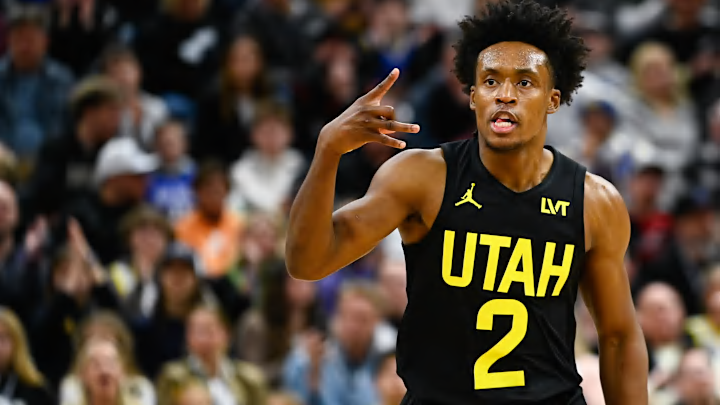The Utah Jazz are trading combo guard Collin Sexton and a 2030 second-round pick to the Charlotte Hornets for Jusuf Nurkić. ESPN's Shams Charania broke the news of the swap roughly 24 hours before NBA free agency officially begins.
Just in: The Utah Jazz are trading Collin Sexton and a 2030 second-round pick to the Charlotte Hornets for Jusuf Nurkic, sources tell ESPN. pic.twitter.com/k5hFMBSlYn
— Shams Charania (@ShamsCharania) June 29, 2025
Yes, you read that correctly: The Jazz are attaching draft capital in this deal, not the Hornets. It's fair to wonder if Charania made a typo, and if not, why Nurkić has more perceived value than Sexton. Both concerns are valid, so let's discuss why Utah was oddly the one to include an additional asset here and if the logic is justified.
Why did the Jazz add a draft pick in Collin Sexton-Jusuf Nurkić trade with Hornets?
Utah's front office, led by CEO Danny Ainge and his son/president of basketball operations Austin Ainge, is well respected. It's not like the Hornets are taking advantage of some new kid on the block (though, technically speaking, the latter is new to the organization). This context makes it even harder to understand what the Jazz did by sending a second-rounder with Sexton to Charlotte for Nurkić.
Sexton, 26, is a talented bucket-getter and improving facilitator who plays with tremendous energy on both ends of the floor and is firmly in his prime. He can flat-out put the ball in the basket, averaging 24.3 points per game with the Cleveland Cavaliers in 2020-21 and an 18.8 PPG career tally. The Alabama product is best-suited as a microwave bench scorer but can operate alongside another guard to be a viable fill-in starter if needed.
Meanwhile, Nurkić is an oft-injured big man entering his age-31 campaign. The Hornets acquired a 2026 first-rounder just for taking him off the Phoenix Suns' hands roughly five months ago. What are we doing here?
Nurkić was ousted from Phoenix after not speaking to his head coach (at the time), Mike Budenholzer, for over two months! So, the Jazz bringing him in to be a veteran presence in their young locker room argument is out the window. He's also a highly inefficient scorer and a defensive liability, making the 7-footer a net negative on the court.
Utah's only valid argument for virtually dumping Sexton for Nurkić is to clear the runway for their youthful core. Prioritizing the development of 2025 first-rounders Ace Bailey and Walter Clayton Jr., plus Keyonte George and Isaiah Collier, makes sense. Nonetheless, that shouldn't make fans feel better about the weak return they received in this transaction.
Charlotte capitalized on the Jazz's apparent desire to consolidate. Sexton gives them someone who can co-exist with franchise floor general LaMelo Ball or replace him in the lineup, which is notable given his injury history. He also provides a vital influx of three-point shooting efficiency to a club that posted the third-lowest percentage from downtown last season.
Entering the final year of his current contract, it remains to be seen if Sexton is part of Charlotte's long-term plans. Regardless, he's an upgrade in the immediate future to Nurkić. The Hornets have a glaring need at center after rerouting Mark Williams (again) to the Suns and willingly parted ways with the latter, which is telling.
